 INTRODUCTION INTRODUCTION |
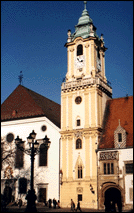
Located at the very center of the European continent, Slovakia is symbolically known as "the heart of Europe"; its geographical center can be found in the Slovak town of Kremnica. The country, prohibited for Western travelers hardly twelve years ago, has changed dramatically since the fall of the metaphorical Iron Curtain. Only slightly known and still undiscovered by many foreigners, Slovakia opens its arms to reveal a great number of undiscovered secrets, beautiful mountains, hot springs, relaxing spas and cordial and heartwarming people.

"Foreigners tend to be poorly informed and therefore do not recognize the potential of Slovakia," underlines Mr. Jake Slegers, Executive Director of the American Chamber of Commerce in the Slovak Republic.
Slovakia is a modern Central European country, appealing for NATO and European Union membership. It is one of the two descendants from the former Czechoslovakia, which used to be one of the world's most developed countries. However, after spending almost half a century as a Soviet satellite country, the communist hegemony has left a significant shadow over the country's face.
Slovakia is very much a country in transition and just as it is positioned at the crossroads of Europe the country has also reached the crossroads of this transition process. Since the "Velvet Revolution" 12 years ago, those changes have been accompanied by the joys, hopes, and disappointments alongside the introduction of reforms. This Great Transition started over a decade ago. Yet, it was not only the communists who were unprepared for what was coming, but also many partisans of democracy and capitalism from the West.
The market-economic and democratic system is composed of three types of institutions, not only political and economic ones, but also moral and cultural institutions. Therefore, three new and different social frameworks had to be developed after the fall of the Socialist regime: economic, political, and the so-called moral regime. When Western experts came to Central and Eastern European countries to help building a free society, they started with the political framework; democracy, popular elections, the freedom of speech, religious liberty and the other civil and political rights that were followed by a free economy. However, after their arrival in 1989 and poised with their blueprints for a political reform and detailed plans for an economic reform, Western experts neglected the most basic of the three systems of the free society, the moral and cultural system. The damage that the socialist period inflicted on the moral system of the people was incalculable. While Western countries were building their success on individualism and personal performance, the collectivist socialism was successful in replacing the historic "God will take care of you" with the "State will take care of you". Individual responsibility, responsibility of the citizens for their own destiny, and motivation to achieve results were disturbed. This is the real transition Slovakia has to go through.
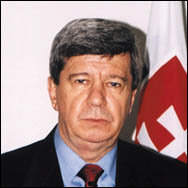
The results of political and economic changes can only arise from a fundamental change in the Slovak people's minds. Mr. Eduard Kukan, Minister of Foreign Affairs of the Slovak Republic hopes: "In the year 2004 Slovakia will be ready [for EU membership] in all areas, even the people's minds. |
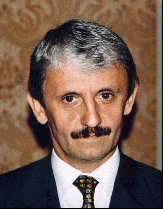
The real transition embeded in Western European standards is not and cannot be achieved overnight. "For a politician, the most important criteria of an economic reform is its impact on the citizens," said Slovak Prime Minister Mr. Mikulas Dzurinda, when evaluating the impact of the reforms.
But Slovakia still has a long way to go - even the expected EU membership in 2004 or 2005 cannot significantly speed up the process. Since the elections held in 1998, several economic measures were taken; an important macroeconomic program has been launched.
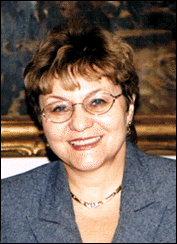
Deputy Prime Minister for Integration, Mrs. Maria Kadlecikova, is proud of the efforts undertaken toward EU integration.
"Positive economic change is going to simplify the administration of taxes and customs, market transparency would combine with business ethics," she thinks.
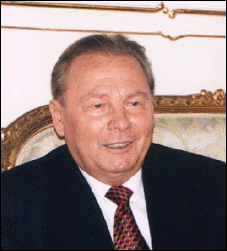
Slovak President, Mr. Rudolf Schuster underlines that the ability of the Slovaks to accept all reforms, even the most painful ones, is still very high: "People see that without the reforms we cannot be successful in meeting the EU and NATO requirements that would enable us to solve the unemployment problem."
Many sectors, such as the energy sector have been liberalized and deregulated. Labor productivity is increasing as well as standard wages (which are presently far below the EU average), inflation is declining, privatization is almost completed. Slovakia has made significant progress toward the adoption of the EU requirements and the "Acquis Communautaire". "Slovak people are still more and more aware of the fact that they cannot reap the fruits of their sacrifice until they join the EU," Prime Minister Dzurinda concludes. |

